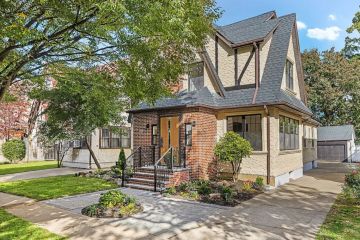What if we had Facebook-style company towns across Australia?
As Sydney continues in its bold ambition to become a city entirely made up of empty investment apartments and currency speculation millionaires, one question has gone painfully unanswered: when all the poors are finally banished, who will make the rich their coffee?
Obviously the wealthy can’t be expected to do such grubby work themselves – especially on Sundays, without penalty rates! – but as the city prices people on barista-wages off into neighbouring time zones, we’re eventually going to have to address the vexing issue of what happens when no worker can afford to live where the jobs are.
And finally we have a model that might fix everything: corporate desperation!
In California, Facebook has realised that the chances of new hires finding somewhere affordable to live in the San Francisco area are basically nil, and has therefore announced plans for a 1500-resident “Willow Campus” next to its headquarters in Menlo Park, incorporating shops and offices as well as low-cost housing.
The company has levelled criticism at local government for failing to address the housing crisis that has seen prices skyrocket, while the government have blamed tech companies like Facebook for making people want to live there in the first place. So it’s heartening to see that the Australian model of housing affordability blame-shifting has become such a successful export.
And this opens up a wealth of wonderful possibilities for an excitingly municipal future for Australia’s bigger employers. For example…
Amazon’s Jungle
The news that the US online shopping behemoth is coming to Australia was welcomed by everyone who believes that the Australian retail sector isn’t dying nearly fast enough, but given the notoriously low wages that the company pays its staff there’s an obvious question about where the thousands of workers will live – especially since all the good burnt-out cars and railway underpasses will be occupied by the many more thousands of retail workers pushed out of their current job.
The solution? Workers can live in their own bit of Amazon-branded jungle!
First up, this would be a boon for Far North Queensland, an area rich in Amazonian-style rainforest and in huge need of an employment boost. And nothing will encourage team-building and cooperation like forcing staff to don loincloths and defend themselves from salt water crocodiles using nothing but sharp sticks and delivery drones.
- Related: How development killed rock’n’roll
- Related: Should we let country towns die?
- Related: You choose, a house or a life?
The IKEA Tiny Tiny Apartment Bloc
On the plus side, IKEA already have experience in showing off their expertise in making space-saving accommodation: their showrooms boast the “35-square-metre home” which is a triumph of storage solutions, careful design and assuming that no one owns any possessions. Bring four books into one of those things and you’d not be able to move.
Still, IKEA could cram dozens of those things into the space currently wasted on human-sized apartments, although getting to them would presumably require following the same unnecessarily circuitous one-way route each and every time.
Bunnings DIY Life-Shed
With all potential rivals falling before them, Bunnings are not only major employers: they’re one of the only chains where their staff would have the skills and materials to build their own accommodations.
The Bunnings campus would presumably be a massive shed with rows and rows of bunks for staff – or, alternatively, they could put some hooks in a wall and store the residents there according to size.
And sure, the idea of a group of practical and coordinated staff building some sort of out-of-the-way barracks does sound a little culty – but then again, their weirdly ominous slogan did warn us that “Lower prices are just the beginning …”
The Commonwealth of the Commonwealth Bank
Once upon a time the Commonwealth Bank was literally the Commonwealth’s Bank – it was Australian’s central bank until 1960 and wasn’t completely deregulated until 1983 – and since the global financial crisis it and the other Big Four banks are guaranteed by the federal government, meaning they can do whatever they like (like, for example, profit handsomely from the sort of wild property speculation which caused the global financial crisis) without actually risking anything.
And with the profits neatly privatised and the risks merrily socialised, maybe it’s time for the bank to reverse the old deal and form its own country?
The Commonwealth of the Commonwealth Bank can act as its own tax haven, providing its citizens with unbiased financial advice and insurance products while quietly racking up transaction fees to keep the nation fluid. And who wouldn’t love to see them squaring off against ANZ staff every four years at the Commonwealth Bank Games?
The Arnotts All-Biscuit Village
By taking advantage of the structural integrity of today’s industrial gingerbread technology, the Arnotts Village will be able to provide affordable housing not only for employees but also for hundreds of Australia’s shamefully neglected witches. Each house will have numerous luxury features as standard, including solar panels, marzipan fixtures and a cast iron gas oven large enough to fit two greedy but resourceful children, should the need arise.
Actual social housing, paid for by the state!
OK, that’s obviously just some sort of a smart-arse joke.
We recommend
We thought you might like
States
Capital Cities
Capital Cities - Rentals
Popular Areas
Allhomes
More







